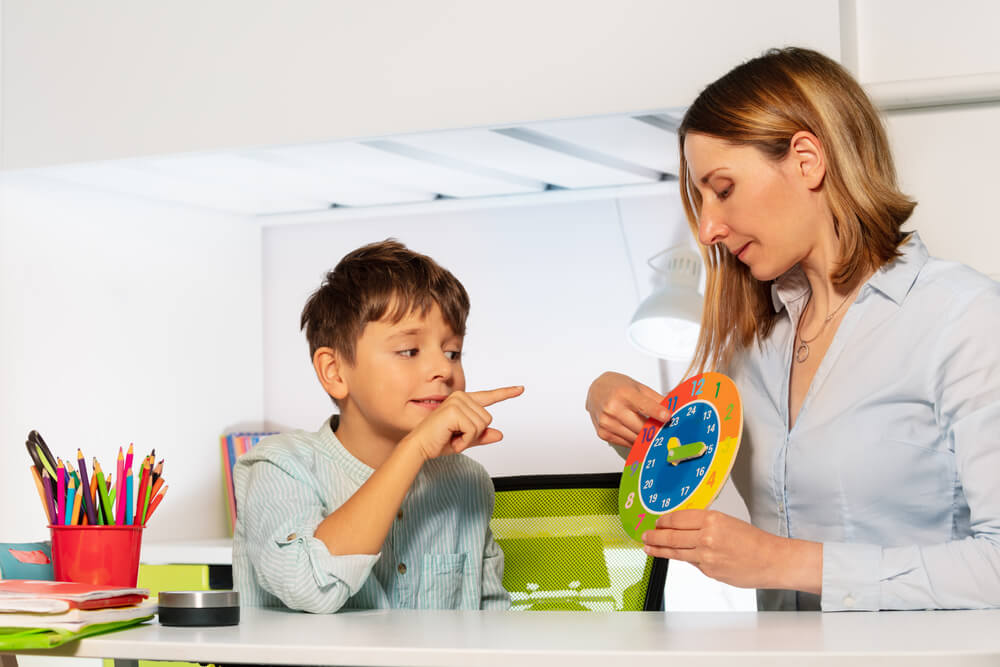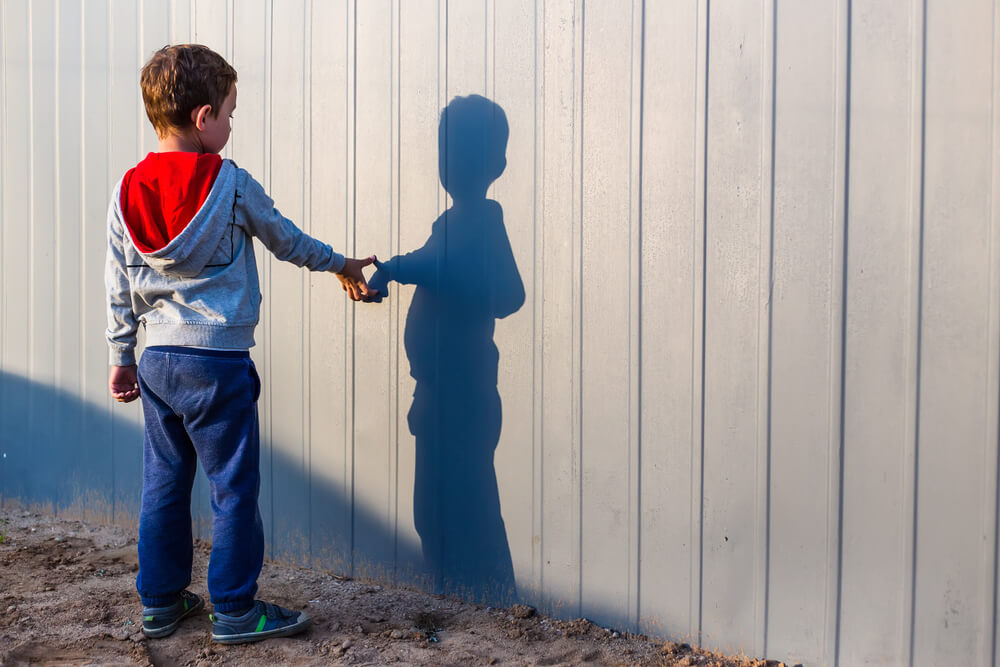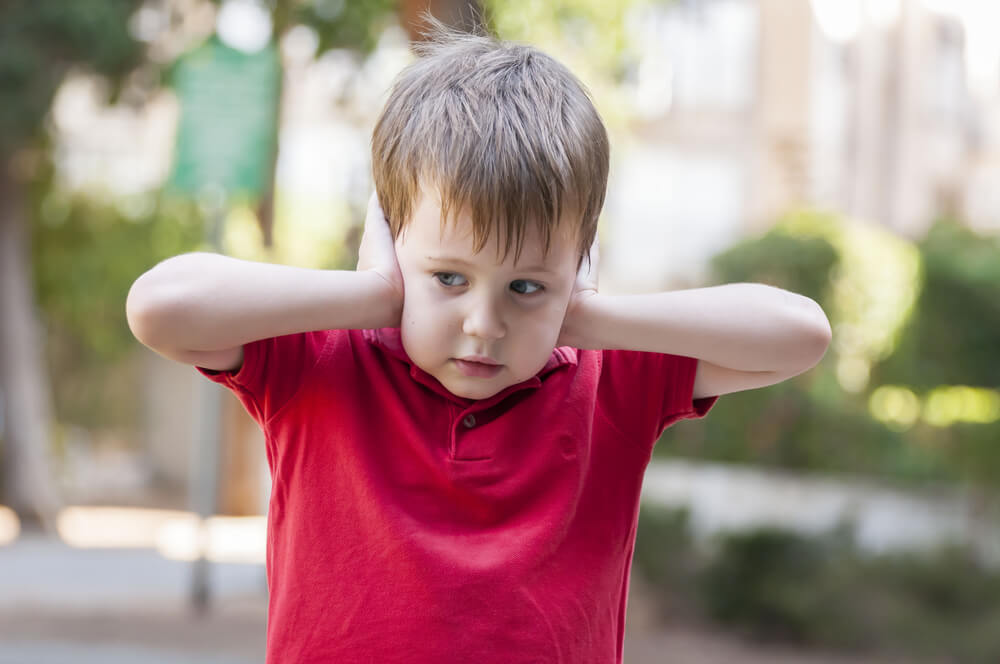Helping Your Autistic Child: A Guide for Parents

Parents of autistic children are like every other parent out there: all they want is the very best for their child. Fortunately, today there is a much greater awareness of autism spectrum disorders, and plenty of support is available for both the parents who are raising these special kids and the children themselves. This support ranges from pre-diagnosis advice to strategies to help an autistic family enjoy the most fulfilling and stress-free life possible.
Below you’ll find hints and tips on how to help manage family life with an autistic child, and some pointers regarding where to access additional useful resources.
Contents:
- Ways to Support Parents of Children with Autism Spectrum Disorder
- Helping Your Child with Autism
- Autism Resources for Families
- FAQ
Ways to Support Parents of Children with Autism Spectrum Disorder

Da Antipina/Shutterstock.com
The best thing you can do to support parents of autistic kids is, first and foremost, to learn as much as you can about the condition, to find out what it entails, how it can impact family life, and effective ways to help parents. The autism spectrum is a broad one, and those with ASD could present with a variety of symptoms—or very few. These symptoms may include social and behavioral problems, obsessive behaviors, tics, and problems with verbal communication.
If you are an employee with a member of staff working for you who has an autistic child, being as flexible as possible regarding the needs of this person is highly recommended. Just a few small changes, such as allowing homeworking now and again or giving them an hour off once a week to attend a parental support group, could make a huge difference in their daily lives. And mean you’re more likely to retain a valuable employee!
Helping Your Child with Autism

Sergey Novikov/Shutterstock.com
Communication Tips
Communication is something that many children with autism struggle with. It’s vital to ensure your child is fully paying attention before giving them an instruction or asking a question. Look out for their own unique signs that you have this before continuing—and always start the sentence or question by saying their name, so they are aware they’re being spoken to.
Engaging an autistic child can be tricky, so try getting started by speaking about the activity that is engaging them at that moment, or begin by talking about their hobbies or interests. Keep questions short, and it’s best to avoid open-ended questions. Those with autism may likely take things very literally, so it’s also often a good idea not to use rhetorical questions, exaggeration, figurative language, or sarcasm, to avoid confusion.
How to Say ‘No’
It can be hard for autistic children to understand why you have said ‘no’ to something they would like or want to do. It can be helpful to show your child a timetable of the week’s planned events so they can see exactly when there will be time for them to enjoy the activity they’re keen to undertake.
If the ‘no’ has been given due to a safety situation, then you may find that explaining the danger and how to stay safe could work well. Alternatively, if the ‘no’ has come about due to unwanted behavior, then you might need to take a different approach. In this case, try to stay calm and not give this behavior too much unnecessary attention. Once things have calmed down, try to discuss with your child appropriate behavior and boundaries.
Finally, some parents find that simply using a different word—or even a symbol—for ‘no’ can be a really helpful strategy.
Read also Toys for Autistic Kids: A Guide to Help Them Thrive.
Using Visual Supports
Many autistic children react well to visual supports, which can help them make sense of their day and provide the structure they need. Visual supports can also offer the additional reassurance that autistic kids often need to help them navigate their routines with minimal stress. Plus, they’re great as an encouragement for promoting independence, developing confidence, and avoiding anxiety.
Types of visual supports include photographs, short videos, miniatures of real-world objects, line drawings, colored pictures, written words, symbols, or squares of plain colored cards.
They can be used to, for example, give a single message (perhaps a square of a purple card means your child is hungry), to make a choice, or illustrate a point or concept. Deploy them in combination to create a timetable, schedule, or reward chart.
Managing Meltdowns

adriaticfoto/Shutterstock.com
Meltdowns and tantrums can happen with all kids, but they can present a particular parenting challenge to those with autistic children. Finding ways to help your child through the storm while keeping them safe and staying calm yourself can be tough.
Catching a meltdown early can help prevent it from fully developing. If you spot the signs of an impending storm, then some steps could help. Try turning down (or removing) any bright lights, suggesting your child wear headphones to listen to calming music or giving your child a fiddle toy as a distraction. Changes to routine (however small) can be triggering for those with autism. Plan for these in advance by explaining to your child clearly and in good time what will happen and having a strategy in place to help them if they become distressed.
Environmental Awareness
A common symptom of autism is a propensity to become overwhelmed by environmental or sensory elements. People with autism may be particularly sensitive to things like lights, noises, and a general feeling of there being ‘too much information.’
There are lots of things that parents can do to help their kids with this. Simply being mindful about shutting doors and windows when necessary to minimize external noise could be helpful; similarly, providing earplugs or headphones to listen to calm music could be useful when you’re out and about.
For kids who are sensitive to touch, warning them before making physical contact is an easy but often effective way of helping them to cope with the variety of sensations they’re experiencing. Always approaching from the front is also likely to be a good idea.
Some autistic kids find the feeling of their clothes unpleasant, overwhelming, or distracting. To this end, try removing tags, allowing your child to wear their clothes inside out (so they don’t feel the seams), and letting them wear the garments that they’re most comfortable in.
Using an App Could Help

EvgeniiAnd/Shutterstock.com
Parents of autistic kids may have particular anxieties about keeping their children safe, especially if they have issues around communication or ‘reading’ others. An app could help. An option like Findmykids has an in-built tracker; once installed on your child’s phone, you’ll be able to track their route and receive notifications regarding places they visit.
My son Mason is 11, he has autism and is deaf. Mason found it hard because he wasn’t able to go out and play after school with his friends as it was too dangerous. This means it was also hard for him to make friends so he felt lonely and isolated.
⠀
My friend told me about your app and I installed it on Mason’s phone. Findmykids gave Mason something precious—it gave him independence and freedom and a chance to make new friends! I can now let Mason play close to home with friends whilst feeling relaxed knowing where he is at all times. It really has changed his life!
The app allows you to contact your child when you really need to, and it can be used to send an SOS signal, so if your child is in distress, you can reach them quickly, which could be especially useful to the parents of an autistic kid.
I’m a mother to a wonderful 10-year-old son with autism. Using the Findmykids app has given me immense peace of mind, knowing that I can give my son a bit more freedom and independence as he grows up.
⠀
My son is able to walk short journeys by himself, and he is very capable. However, his autism means that he doesn’t always acknowledge the dangers around him. The app will accurately track him even whilst he’s on the move and can even allow us to have 2-way communication.
⠀
It is an amazing app and a very useful tool for keeping children safe.
If your child gets lost or becomes overwhelmed, you can also use the app to hear what’s going on around them, so if they can’t clearly explain what’s happening and/or where they are, you can get to them.
Making Friends

Olesia Bilkei/Shutterstock.com
Social situations may be particularly difficult for those with autism, leading to problems with making friends. Your child’s school may be able to help here: you could ask if they would be prepared to introduce a ‘buddy’ or ‘circle of friends’ program to help your child and other kids who may be struggling to connect with their peers.
You may need to start with the basics regarding social skills: what is likely to come intuitively to other kids may be tricky—even incomprehensible—to an autistic child. Take it one step at a time, practice, and, when in social situations, remove as many possible triggers and stressors as possible.
Several apps are available online specifically designed to support kids’ communications skills, so why not check these out, too?
Managing Sleep Problems
Autistic kids are especially liable to have problems drifting off to sleep and/or waking up several times at night. There could be many reasons for this, including anxiety, light sensitivity, or medical reason. It’s important to discuss this with your healthcare practitioner, who may ask you to keep a sleep diary to track what’s going on.
In general, following the same bedroom routine every night, including on weekends, ensuring their room is completely dark, and allowing your child to wear earplugs if they wish, may help.
Autism Resources for Families

Ground Picture/Shutterstock.com
There are lots of resources and organizations out there designed to support families and children with autism.
These include the Asperger/Autism Network (aAN), which provides individuals, families, and professionals with resources, information, support, education, and advocacy, and MyAutismTeam, a social network designed to offer support to the families of autistic children. As well as sharing tips and advice with other parents, the latter site also includes a searchable directory of more than 35,000 autism specialists and autism-friendly providers.
You may also want to check out Sesame Street in Communities: Autism, which is a nationwide portal that gives families with autistic children aged two to five positive ways to overcome challenges and develop strategies that work for them.
There are also several federal agencies and federally-funded organizations that may be useful sources of information and advice, such as the Center for Parent Information and Resources (CPIR), the Center on Technology and Disability, and the Office of Special Education Programs (OSEP).
Your child’s healthcare worker, teacher, and other support providers are also likely to be a great source of information, advice, and resources.
Make your life calmer by downloading the Findmykids app to your phone. With it, you will always know where your child is, and you will be able to listen to the sound around to make sure that everything is fine with them!
FAQ

Roman Yanushevsky/Shutterstock.com
What do you say to the parent of an autistic child?
Parents of kids with autism should be spoken to in the same way as you would to the parents of any child. Avoid approaching autism as if it’s a disease the child is suffering from; they may experience the world differently, but autistic kids have just as much to offer their communities and the world as any other child.
How should parents treat their autistic children?
As mentioned above, the symptoms of autism can present in various ways, from having trouble with social skills to experiencing ultra-sensitivity in terms of touch or noise. Being mindful of how your autistic child interacts with the world is the best way to manage day-to-day life. Having routines and schedules in place, and preparing them for change in advance, is likely to work well in general.
What is the best parenting style for children with autism?
Just as all kids are different, all kids with autism are inherently different, and a strategy that is effective for one set of parents may be entirely ineffective for another. However, broadly, a compassionate, calm approach is key.
Is it hard to parent an autistic child?
Parenting an autistic child can be a challenge, there’s no doubt about it. Whether your child needs additional support to learn daily tasks or finds it difficult to be in busy places such as shopping centers or at a party, there will need to be plenty of flex in your parenting. However, being the parent of an autistic child can be profoundly rewarding; while they may not be able to communicate their love for you verbally, you’ll feel it in other ways.
Is parenting an autistic child stressful?
Parenting any child is stressful! The early childhood days, toddlerhood, and beyond all come with their own unique challenges and difficulties. But parenting an autistic child can be particularly intense. Due to this, parents must seek support when they need it, accept help when it’s offered, and build regular relaxation time into their day, even if this is just a ten-minute meditation before bed or a hot bubble bath at the end of the day.

Olesia Bilkei/Shutterstock.com
If you’re the parent of an autistic child, the above tips and information may help you navigate your day more smoothly and help your child do the same. Having an awareness of how your child experiences their world and their triggers are likely to be a good way to help them (and you!) manage their feelings and prevent overwhelm. Make the most of the resources available, too, for additional support and advice when you need them.
Are you the parent of an autistic child? We’d love to know your family’s everyday tips and strategies—please drop us a comment in the box below!
The picture on the front page: Dzmitry Sarmont/Shutterstock.com
Проверьте электронный ящик



















